Langkawi, Malaysia has a lot of stray dogs and cats and has had for years. It’s not a new issue. Some people complain about it, some people do what they can to help, and many don’t see it because it doesn’t affect their lives. Like many issues in the world; homelessness, starving children, domestic violence, etc. If it doesn’t affect them directly, it’s someone else’s ‘problem’.
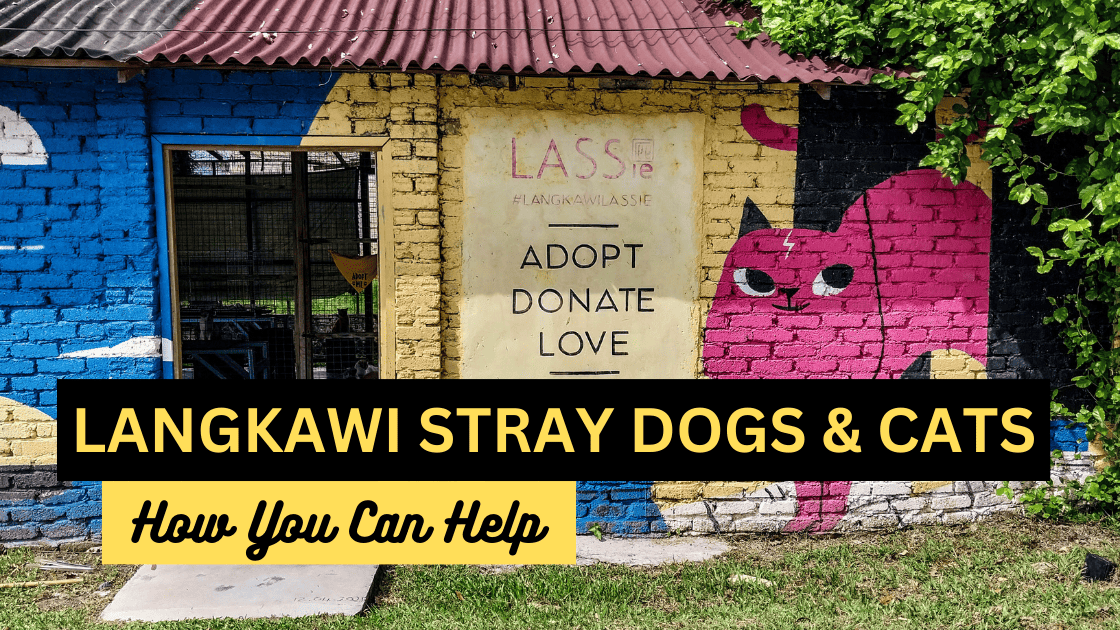
And then, of course, there are others who find passion in the woes of the planet. Or opportunity. Regardless of your own mission in life, if Langkawi stray dogs and cats have tugged at your heartstrings and you need information, then this blog post was written for you.
The New Kid in Town
Years ago I was visiting Koh Lipe, Thailand and saw a dog dragging his hind legs behind him as he crawled slowly down the beach. I immediately went into great white hope tourist mode (tears running down my cheeks as well). This poor dog! I must save him! Why is no one helping him!? Oh, yeah, I was one of those folks.
Thankfully, locals quickly enlightened me about the situation before I embarrassed myself further. Everyone knew this island dog and everyone kept watch over him. He was not a victim of any deliberate cruelty, the dog was a victim of an accident and had lost the use of his back legs. But he also had loads of community support. Moral of the story? Don’t jump to conclusions until you know the facts. Which is often easier said than done if one is a bleeding heart or do-gooder.
Welcome to Langkawi, Malaysia
Since childhood I have always been an animal lover. Becoming a veterinarian was even my first career choice way back when. Over the years I have had many pets, and have done my fair share of rescuing too; cats, dogs, even a Blue Heron once. It wasn’t until I came to Langkawi that I got a reality check. The wet market alone was a rescuer’s dream come true (or nightmare).
Skinny cats and tiny kittens everywhere. It was heartbreaking. Various local expats (and locals) made the rounds of feeding strays and for a few expats it seemed to become an obsession. Or hobby. Or purpose in life. Soon they became ‘the one to call’, for anyone who was in need of a quick animal related solution; to do the dirty work if you will.
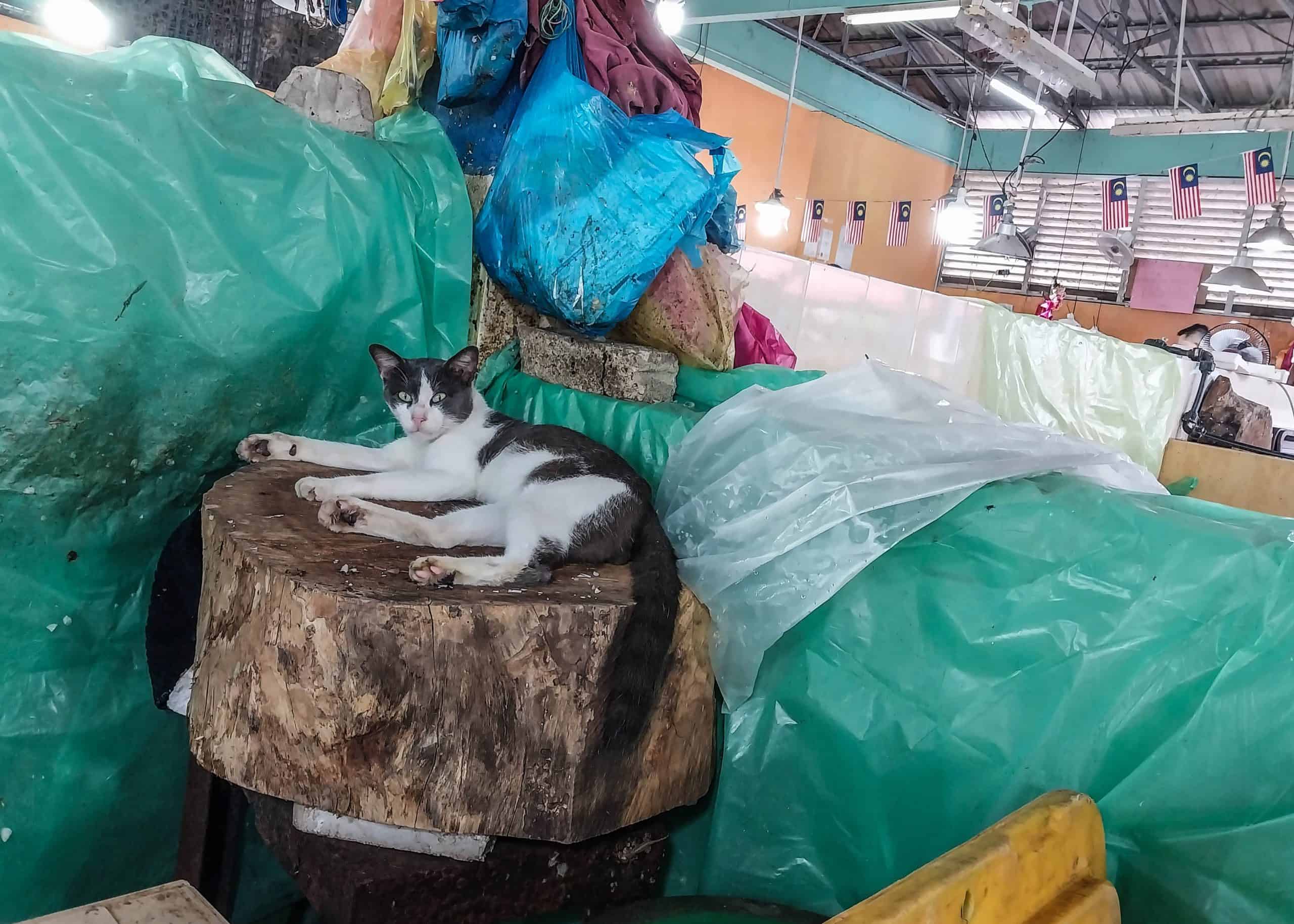
The reality is that rescuing stray dogs and cats can be expensive, as well as time consuming. I know because I have spent a bundle on spaying, neutering and medications over the years. No I don’t drive around looking for strays, I limit my efforts to my own kampung (village). But I soon realized that there is a limit to how much do-gooding I can afford; financially as well as timewise. I have to make a choice on how involved I get in animal related charity work.
Langkawi Stray Dogs & Cats; A Little Past History
When I first visited Langkawi back in 2006, I was also introduced to the amazing animal sanctuary efforts of LASSie; a program run by Bon Ton Resort. The resort offered housing for many homeless dogs and cats (until they would hopefully get adopted). They also ran a lovely gift shop in which proceeds went towards helping strays and keeping the LASSie program afloat.
But one of the best things they also offered was an animal clinic with a sliding scale payment and often free spay and neutering for strays. Of course, more than a few people took advantage of the freebies (when they could actually afford to pay)… but I digress.
Despite these offered services, far too many people either knew nothing about the services, were too lazy to bring their pets in, or in some cases had personal reasons for not wanting their pets spayed or neutered. Unfortunately, the sanctuary also became a late night dumping grounds for unwanted pets and injured strays. Many litters of puppies and kittens were also dumped there under the cloak of darkness.
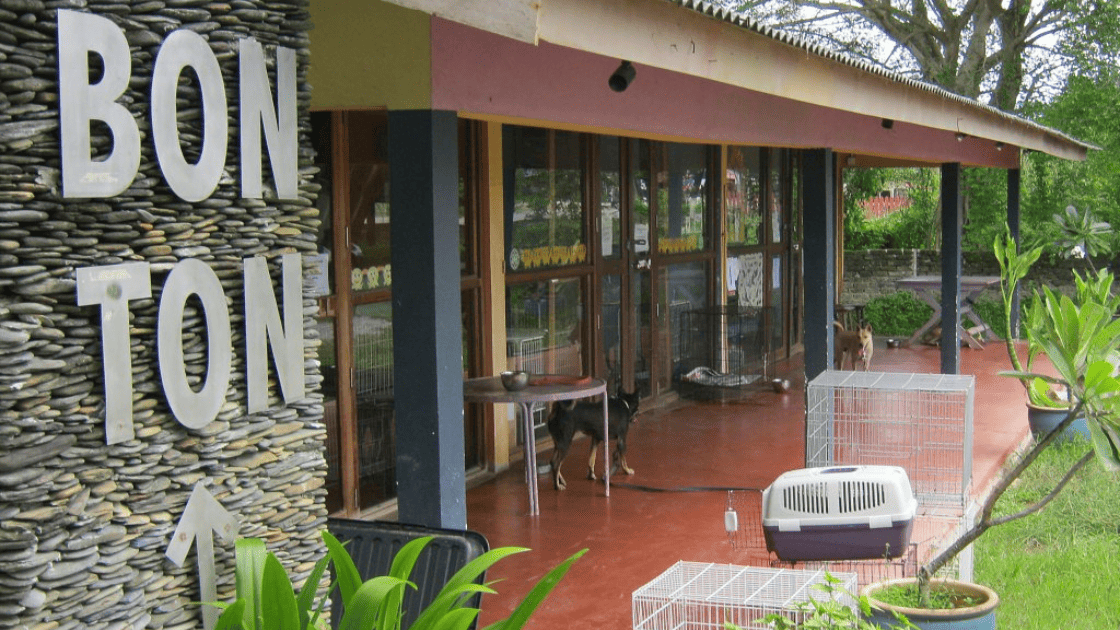
Some staff were paid, but the sanctuary’s efforts relied heavily on volunteers. The staff and volunteers grew weary from the endless cycle and slowly went away. Some decided to branch off and run their own rescue programs, and the LASSie program became a shadow of its former self.
Unfortunately, some of those good intentioned home efforts can quickly run into cash flow issues. With no consistent money to pay for medical supplies and food, things start getting tricky. Like a shell game of who is doing what. Public pleas for donations and individual crowdfunding efforts often being confusing; the donation waters getting muddied in the process.
Well it has been a learning curve over the past years, but now there are a few more NGOs and volunteers who each have their own specialty and are working together to improve the lives of Langkawi stray dogs and cats, as well as abandoned family pets.
Strays; Abandoned Pets and Feral, What’s the Difference?
Now before you silently curse those who leave dogs and cats behind or shame the owners, well, we just don’t always know the situation now do we? Pet owners die, pet owners lose jobs or have to move to places that refuse pets, and yes of course some people are just plain selfish jerks.
You will quite often see many very well-fed dogs and cats roaming the streets of Langkawi. Some have always lived on the streets. Some are abandoned pets that have readjusted to life on the streets. Some were born on the streets. And sometimes groups of stray dogs (and their offspring) form feral (wild) packs, often coming out at night to hunt for food or just make the rounds of the nearest kampung (village).
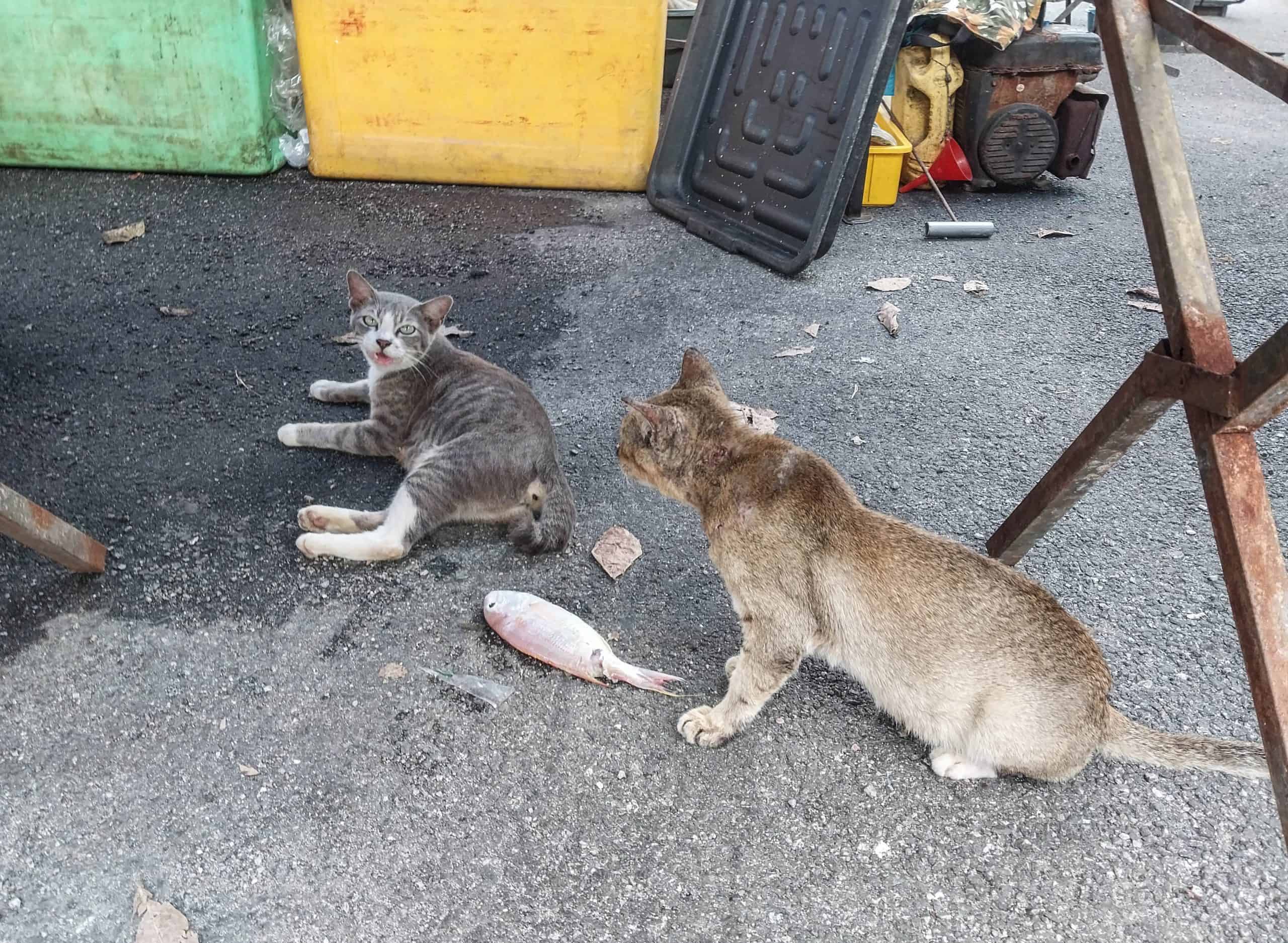
They get in fights, they get hit by cars, they get sick; survival of the fittest at its best. All part of the cycle of island life and death. Not all of them need to be ‘saved’ or ‘rescued’. But many do need to be spayed or neutered; which will not only help keep the population down, it will also help make the strays less aggressive.
Some do need help, of course, but similar to my little clueless, melt down in Koh Lipe, local knowledge is king. That’s where the NGOs and local volunteers come in. Langkawi locals who are well versed in who to call and what to do for different situations.
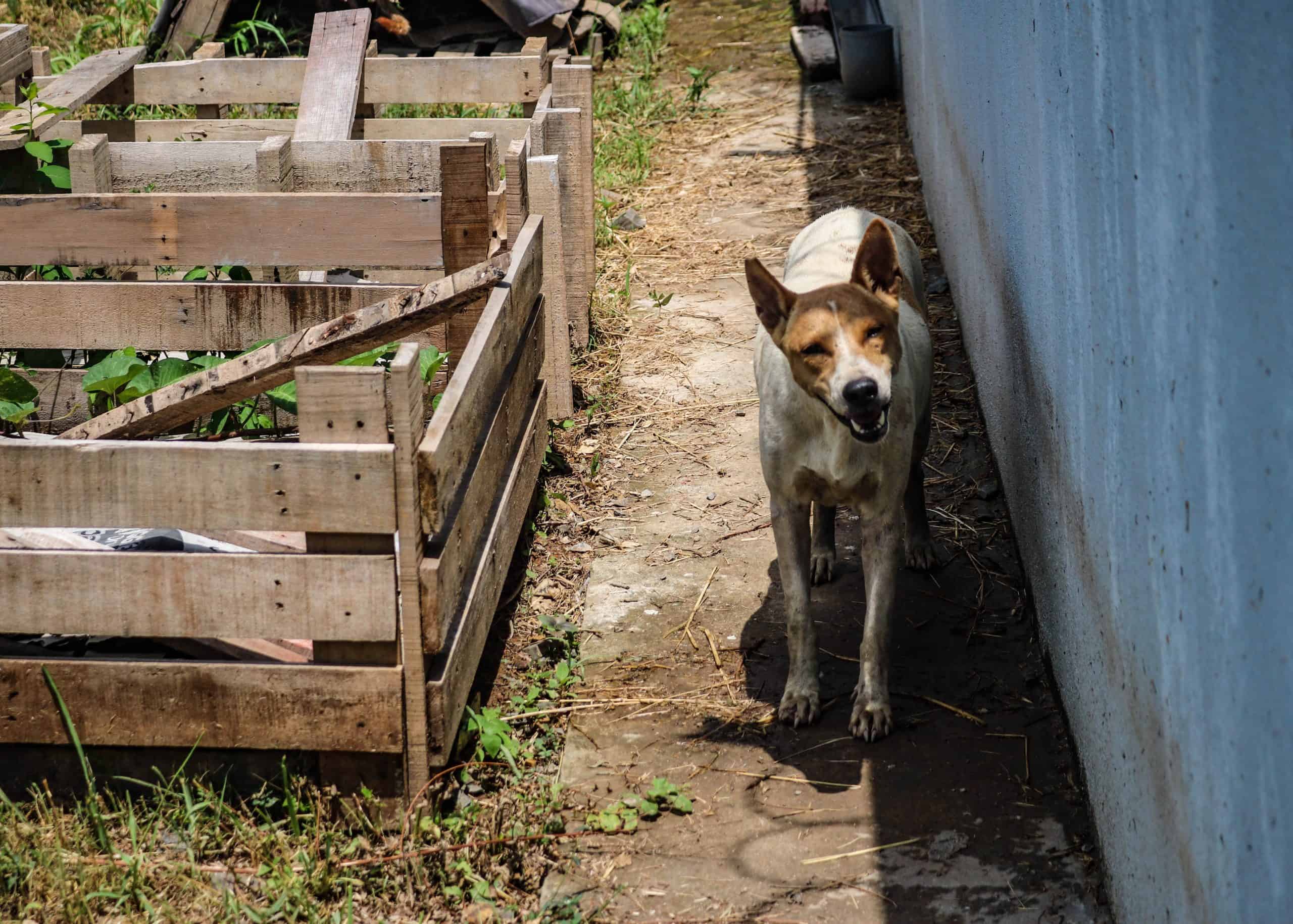
Langkawi local people often triage based on their years of experience. Triage means prioritizing. In that some strays may even need to be put down as the most humane way of dealing with their situation. If a vet bill is going to be astronomical or a gamble, sometimes seemingly cold-hearted decisions may need to be made. Sorry folks, life is not a Disney movie and they can’t all be saved. But many of the Langkawi stray dogs and cats lives can be improved.
Who Are the Local Champions of Langkawi Stray Dogs and Cats?
Let me introduce them!
TNR Langkawi Trap Neuter Release/ Relocate (NGO)
TNR Langkawi was started by a few local animal lovers using a similar organization in Kuala Lumpur (TNR Malaysia) as their model. After years of fielding phone calls from Langkawi residents needing help with an injured animal or asked what to do with a litter of puppies, they narrowed their own efforts down to focusing on the population growth of the strays. TNR means trap, neuter, release and TNR Langkawi does just that.
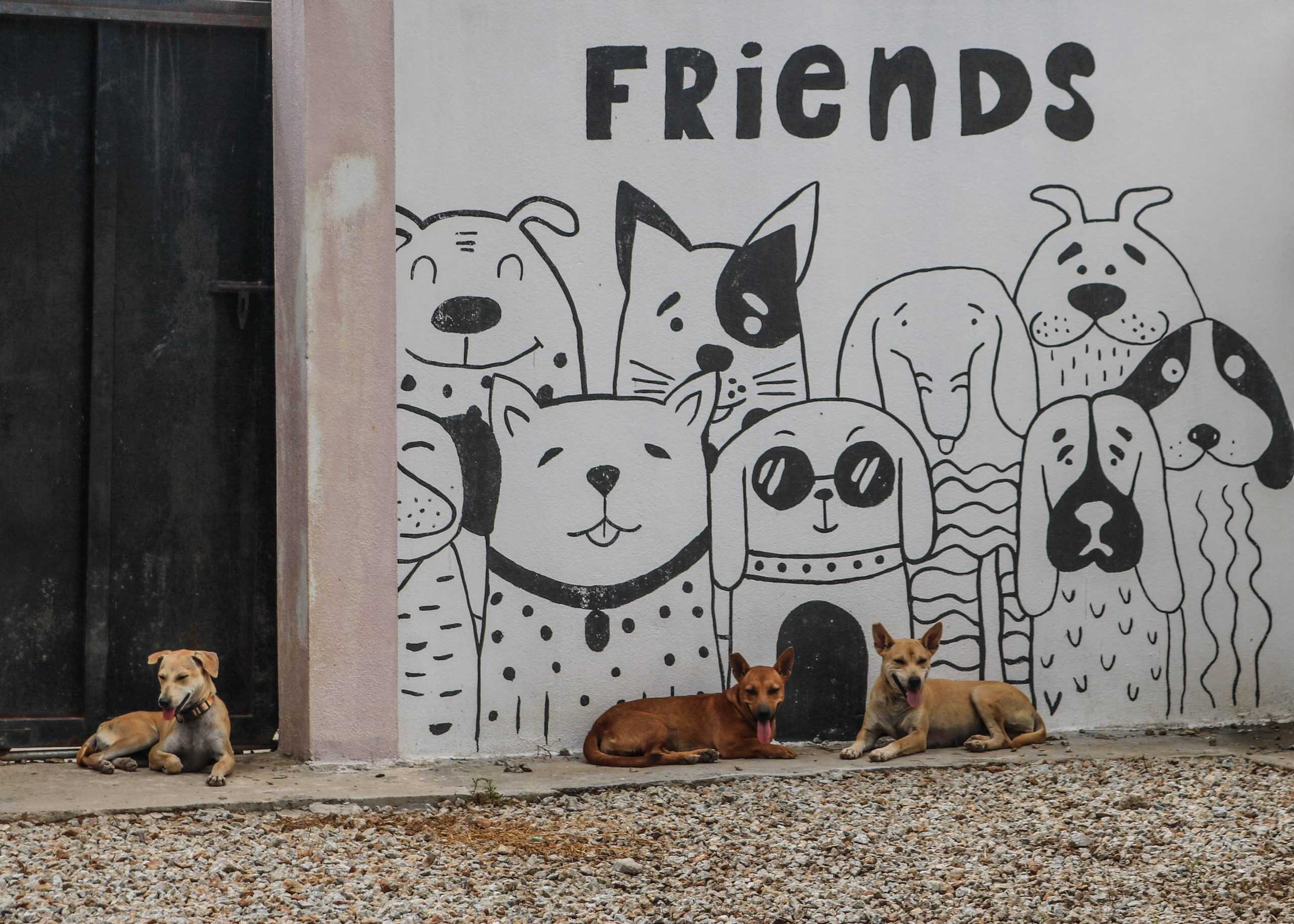
TNR Langkawi now voluntarily manages the Langkawi town council (MPBPL) kennel facility at Belanga Pecah and through generous donations has expanded and refurbished the facility to be a much homier environment than it previously was. They even work with MPBPL’s K9 unit (aka dog catchers).
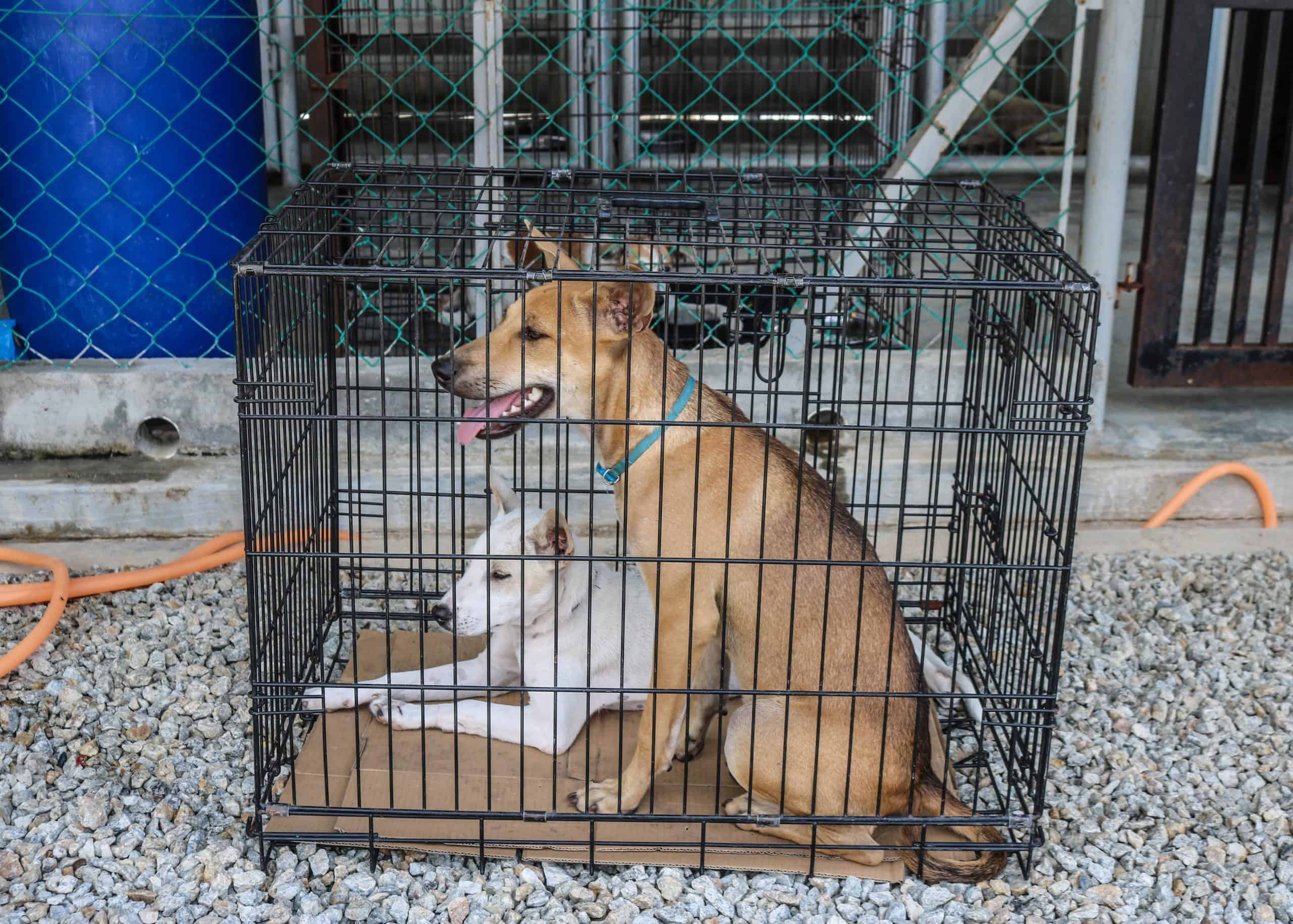
The ‘dog catcher’ has always been society’s ‘boogie man’. A scary entity often depicted in cartoons as cold hearted and cruel.. One might even wonder what type of people would even want to sign up for such a job, because it certainly can’t be fun. But in combining efforts with TNR Langkawi, the MPBPL K-9 unit’s job and efforts has new meaning, focus and applaud-worthy goals.
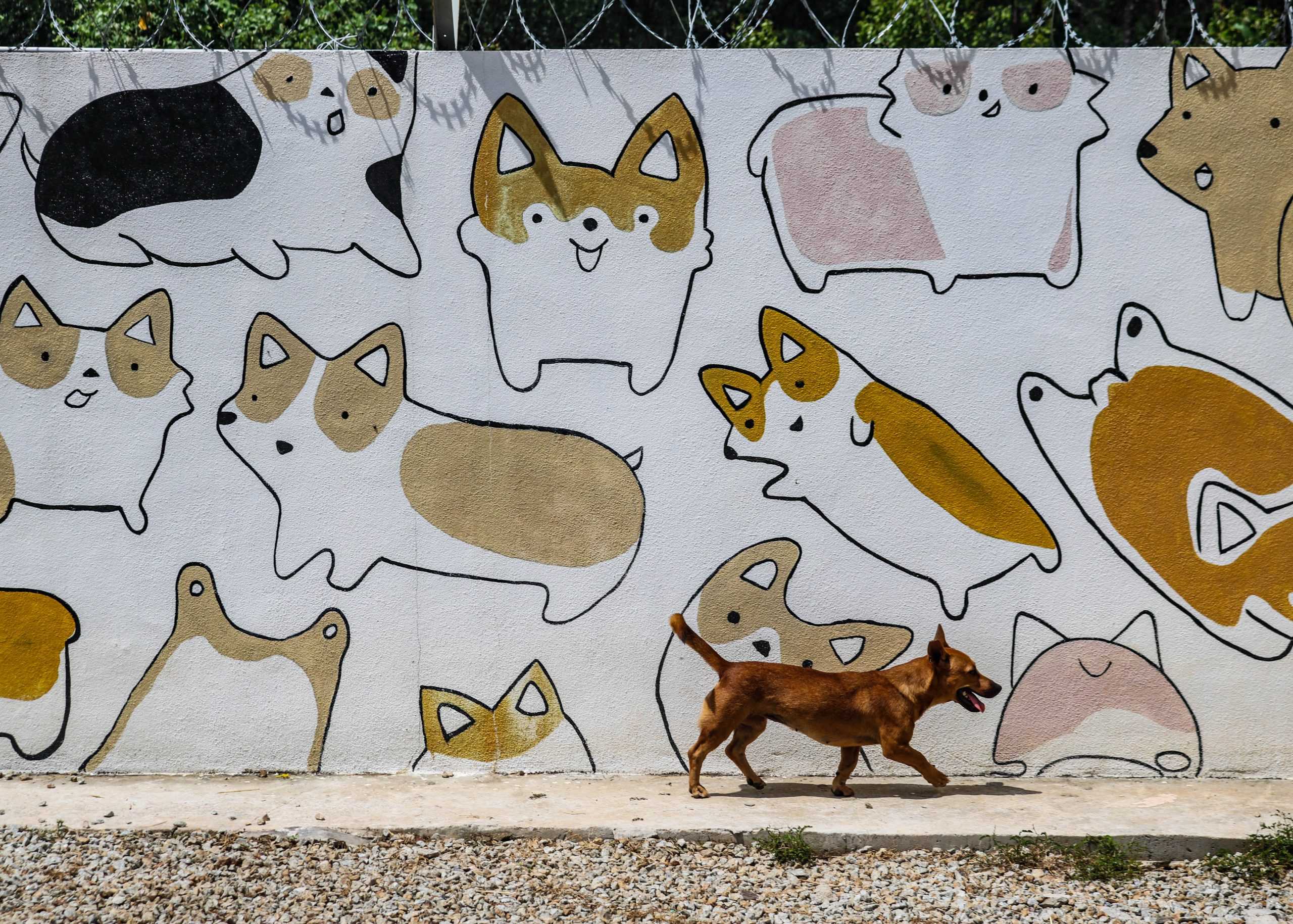
How their program works:
1. MPBPL’s K9 unit catches stray dogs and brings them to the facility
2. Volunteers care for the dogs temporarily until a future neutering date
3. Once a month, TNR Langkawi runs a neutering program with local vets to spay, neuter and vaccinate the strays in the kennel
4. After surgery the dogs are kept under observation for a few days before being relocated (to a safe place, or to a permanent home)
5. ‘Tipped’ (or cut) ears indicate that the stray has been neutered and vaccinated against rabies
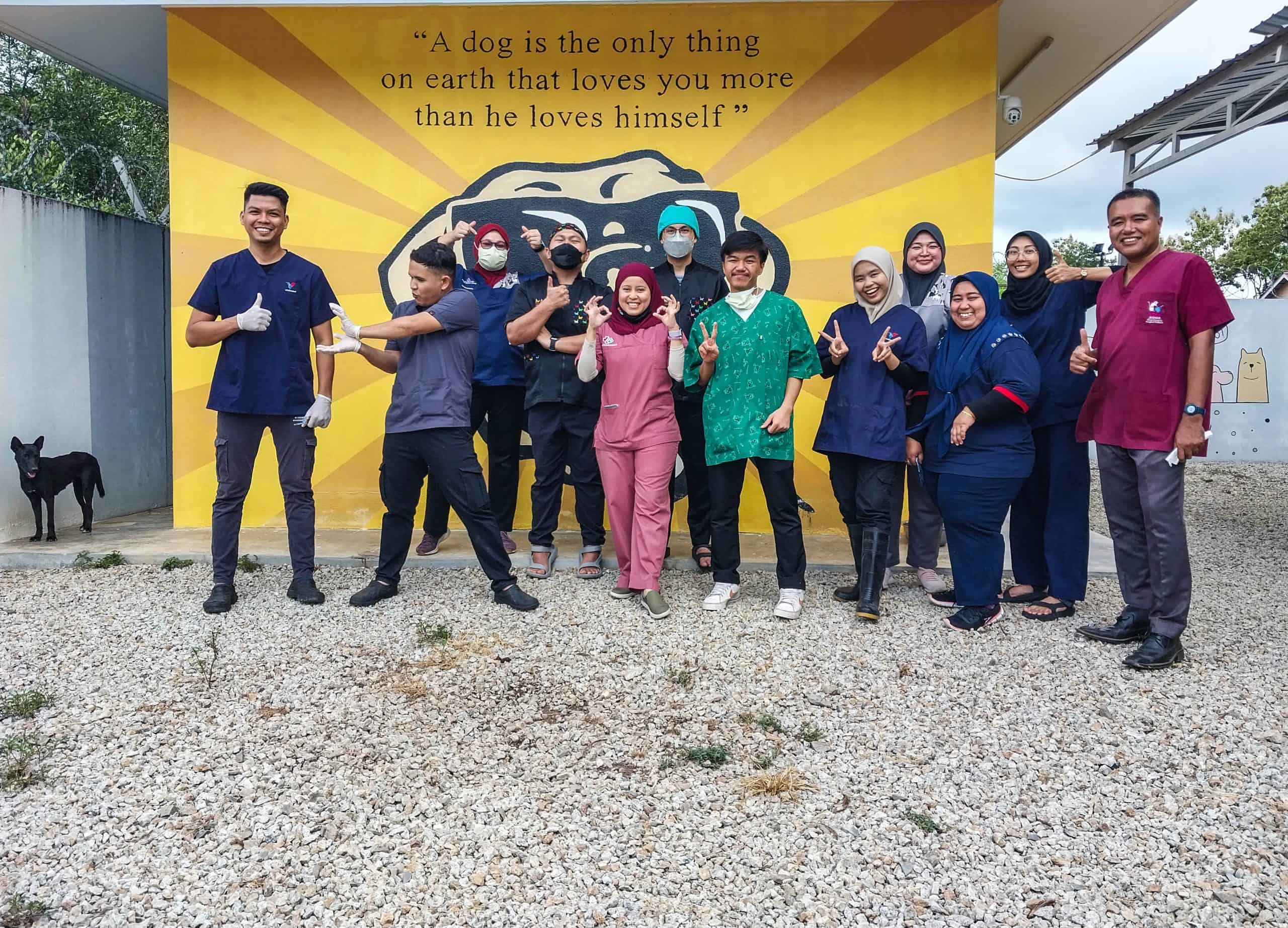
According to TNR Langkawi it takes RM305 to neuter, vaccinate and give basic treatment and care to each dog who passes through the kennel. One of the problems for TNR Langkawi is that they also receive many puppies. The puppies being collected by MPBPL’s K-9 unit cannot immediately be neutered or spayed, thus due to limited kennel space many need to be fostered by volunteers until they are old enough for surgery. Unfortunately, by that point it is too late for the pups to be released back into the wild. Then efforts are made to find them, hopefully, forever homes.
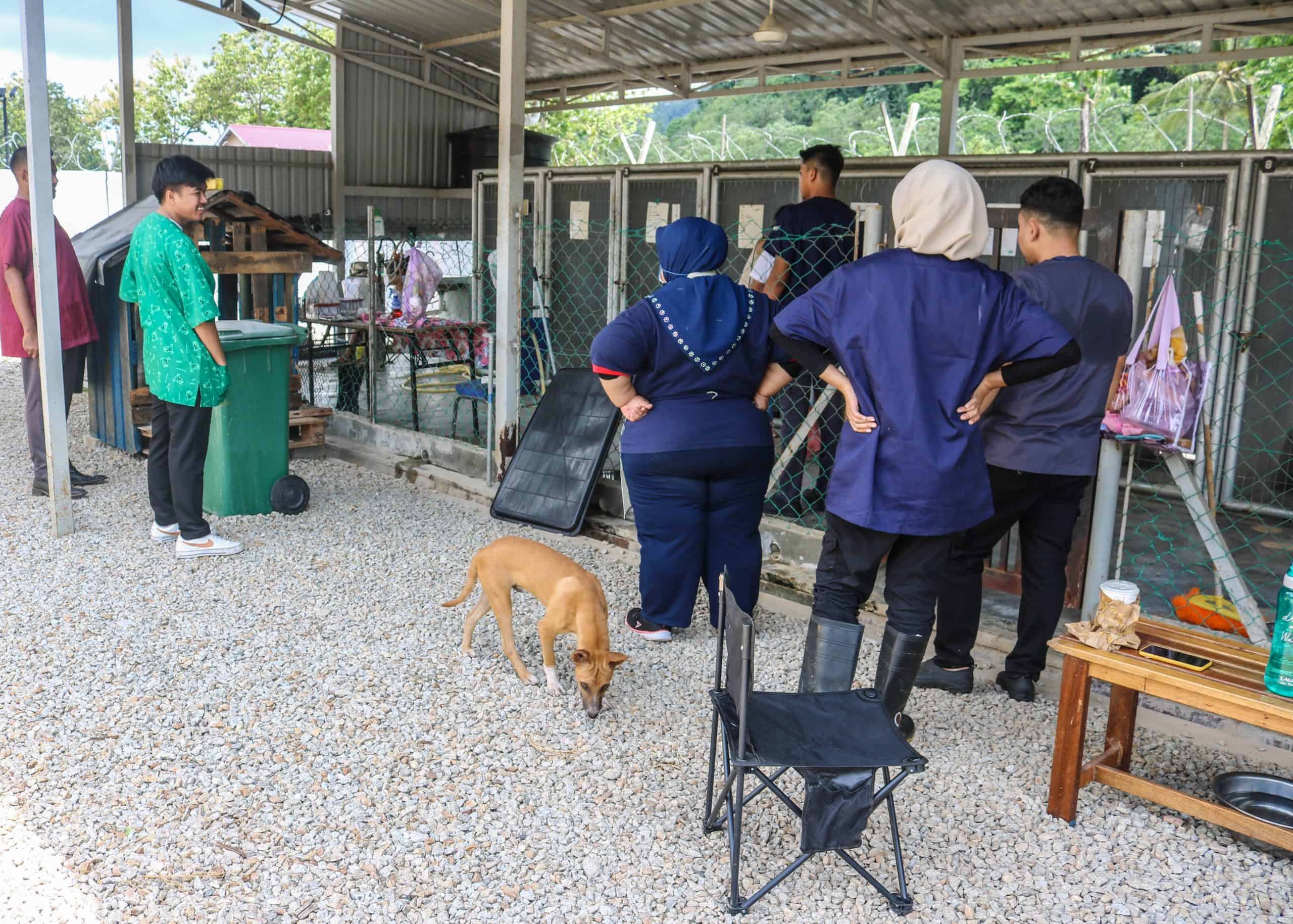
TNR Langkawi shares funding with some of their regular foster volunteers, to help cover costs of food/ medications. They can also tell you how every Ringgit is spent and where it goes.
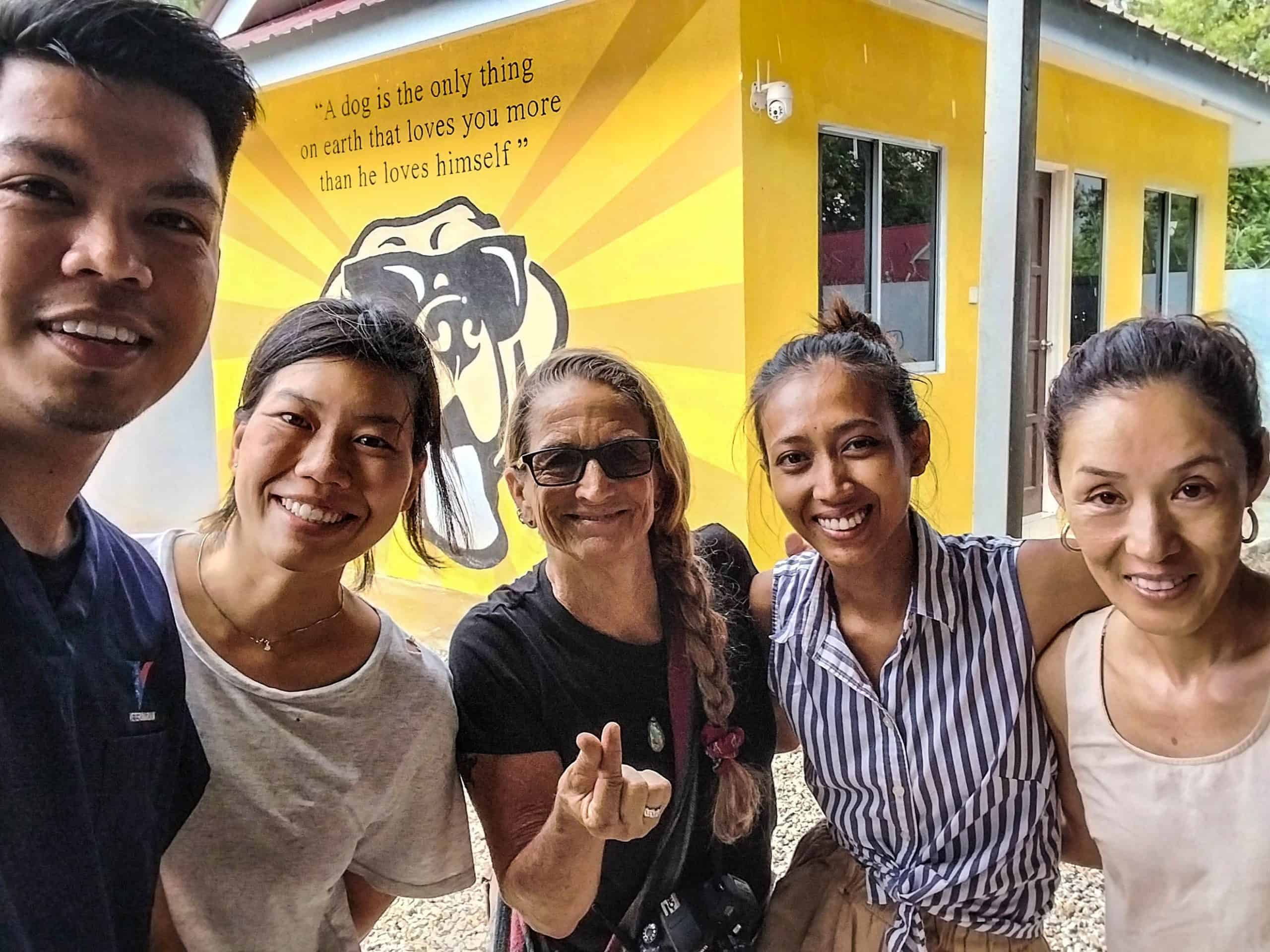
It’s a vicious cycle, but TNR Langkawi is doing an excellent job of spaying and neutering as many strays as possible. It’s expensive and time consuming, but the TNR volunteers are on a mission to improve the lives of Langkawi’s stray cats and dogs.
TNR Langkawi (trap, neuter, relocate program)
Needs: money, donations of food, medicine & supplies, volunteers
For cash donations & pledges: Whatsapp +6019-488 5694
Social media:
Facebook: TNR Langkawi
Instagram: TNR Langkawi
World of Our Furry Friends: WOOFF (NGO)
World of Our Furry Friends (aka WOOFF) was started by Jeffry Tan, an alumni of Langkawi’s original animal shelter LASSie. A passionate animal lover, in Langkawi he is everyone’s first call for emergency situation animal rescues due to his amazing ability as a dog ‘whisperer’. His reputation as the go-to guy for rescuing, as well as pet sitting sensitive animals, is legendary.
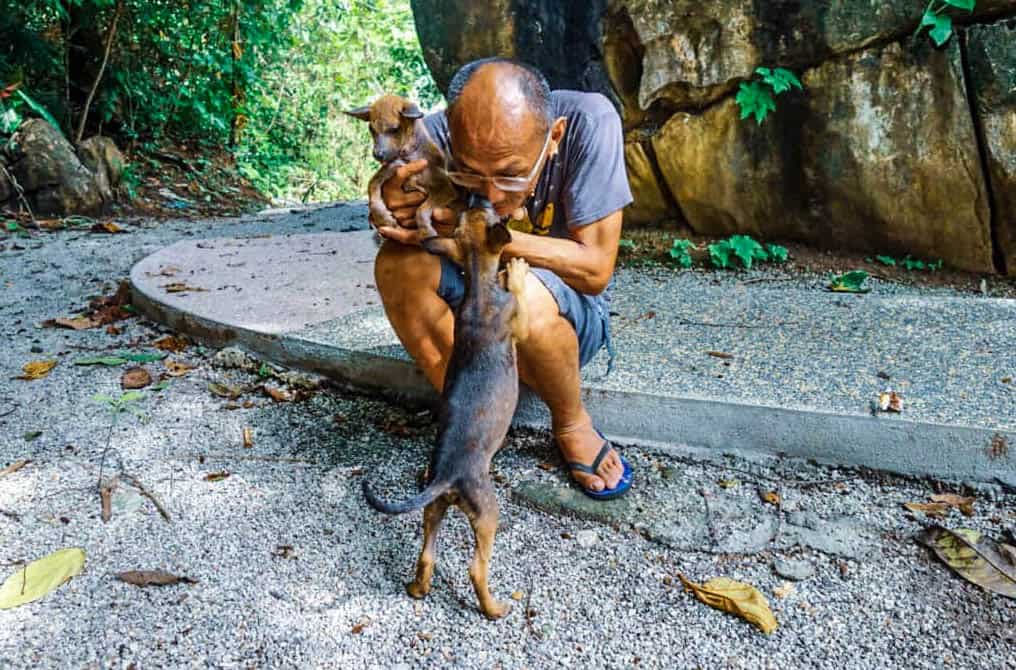
(image source: WOOFLangkawi website)
Over the years Mr. Tan has accumulated numerous dogs and cats, that needed long term care due to serious bodily injury or sickness. His initial funding came from his own pocket and community donations. So, he registered as a proper NGO for transparency. WOOFF’s website explains his mission statement best:
“WOOFF is the island’s only animal sanctuary and the only place injured animals can safely rehabilitate, with a strict no-kill policy in place. We are dedicated to rehabilitate injured or traumatised strays and give them a second chance, either as permanent residents in the animal sanctuary or to be adopted into new, loving homes. WOOFF currently cares for over 100 dogs and 20 cats. We receive no government funding and are largely reliant on international volunteers and financial donations.
Our sanctuary operates a free-range concept, giving the dogs the freedom to exercise, interact with each other, and learn essential social skills. Only newborn puppies and severely injured dogs are kept in protective enclosures until they are healthy enough to mingle with the other dogs.
Our animals’ heartbreaking ordeals mean they often need specialised care like hydrotherapy for nerve damage, wound management, or trauma recovery. Dogs able to reach full recovery are adopted to new homes, while those requiring ongoing care become permanent residents in our sanctuary.”
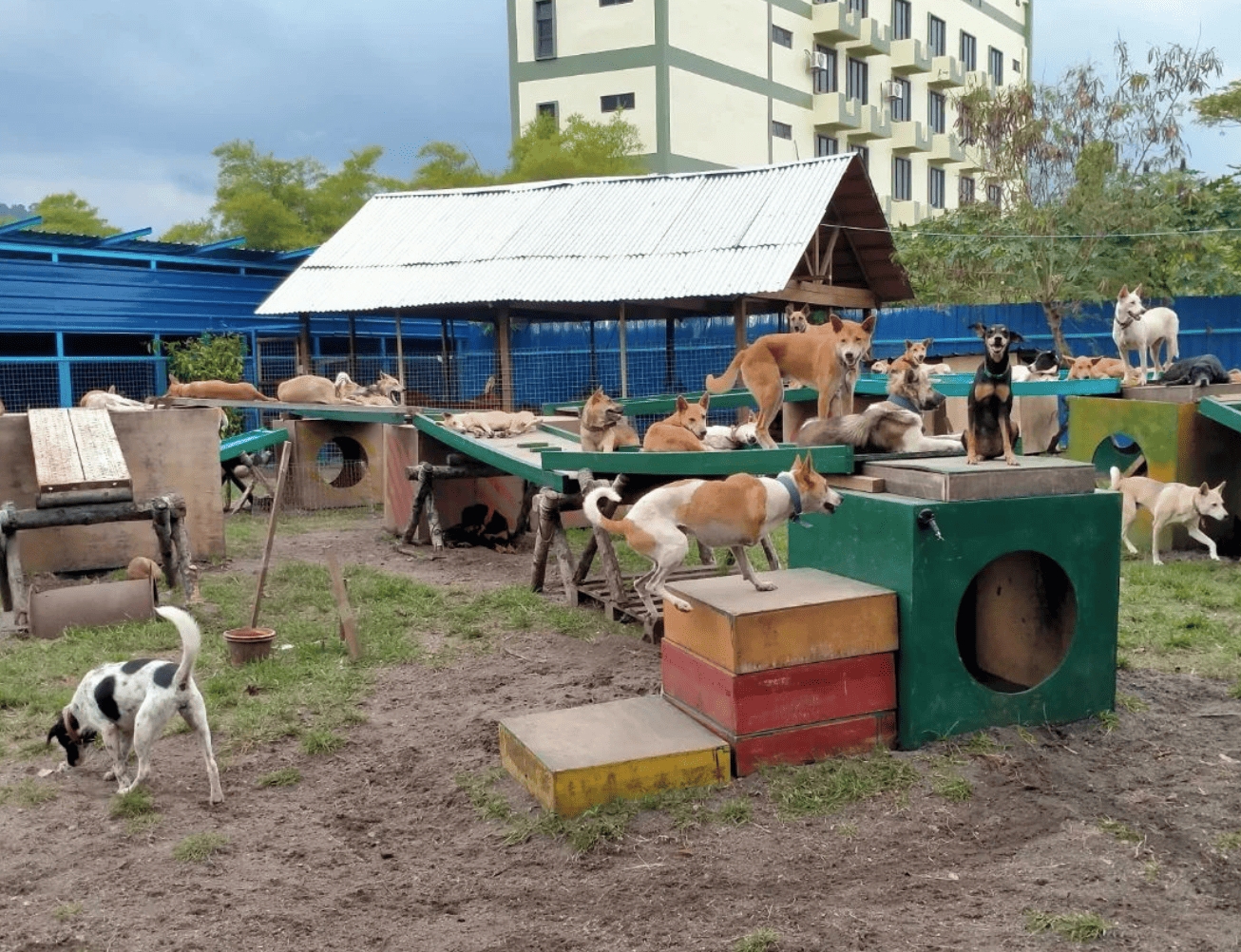
WOOFF is generally a one-man show, but also works with local volunteers. The sanctuary also has a live-in volunteer program where traveling animal lovers can help out, as well as learn to rescue and rehabilitate dogs and cats.
World of Our Furry Friends WOOFF (NGO)
Needs: money, donations of food, medicine & supplies, volunteers
For cash donations & pledges:
Malayan Banking Berhad
Account Name: Persatuan Pencinta Dan Pemulihan Haiwan Malaysia
Account No: 502072633377/ Swift Code: MBBEMYKL
Paypal: https://paypal.me/woofflgk
Email: [email protected]
Website: wooflangkawi.org
Social Media:
Facebook: WOOFF LANGKAWI
Instagram: woofflangkawi
LASSie: Langkawi Animal Shelter and Sanctuary (NGO)
LASSie Langkawi Animal Shelter and Sanctuary was started by a passionate animal lover from Australia who is also an owner of Bon Ton Resort. Back in the day, the sanctuary housed many strays, offered veterinarian services and had a popular live-in volunteer program. Funding came primarily from the resort and public donations.
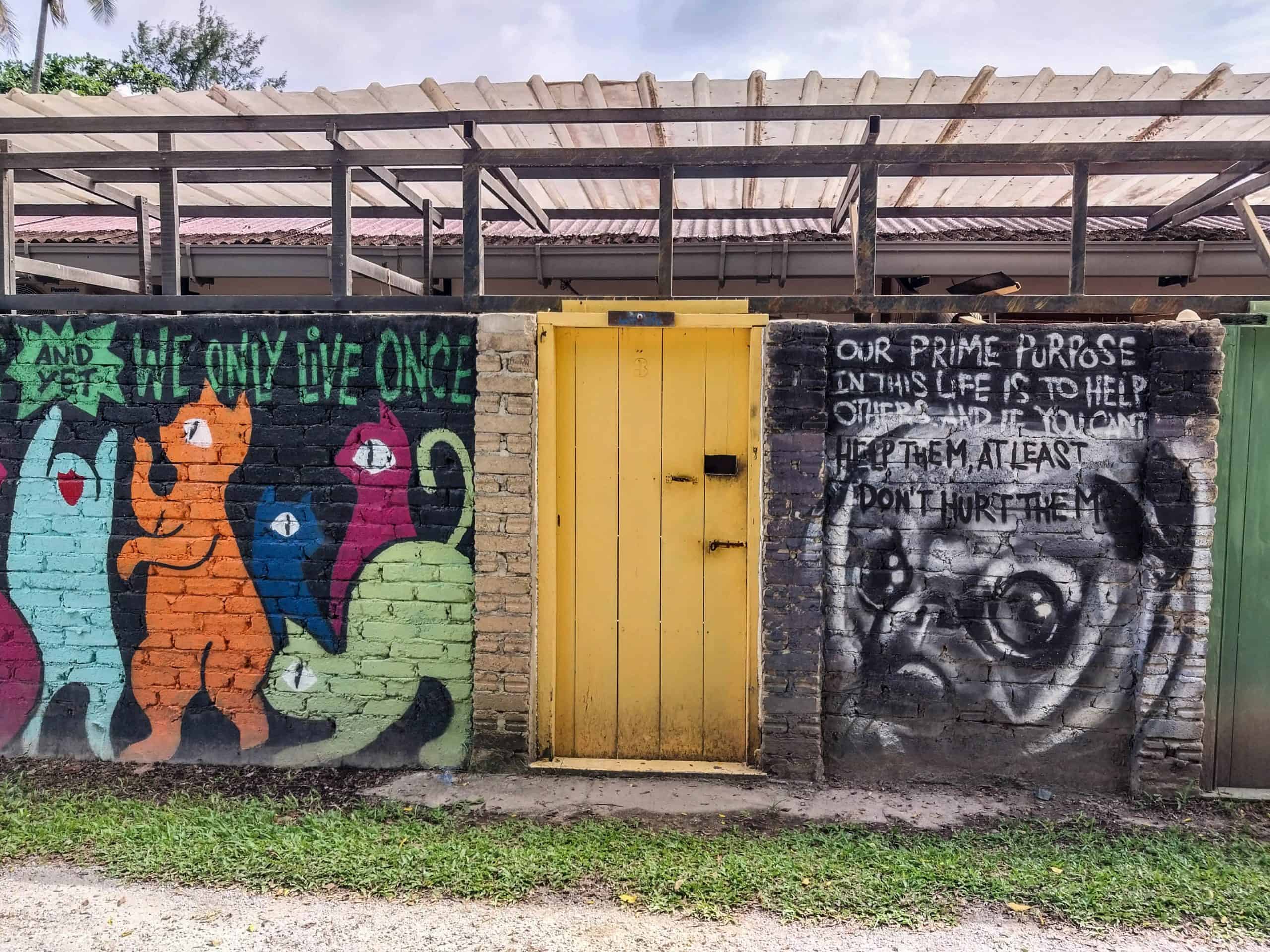
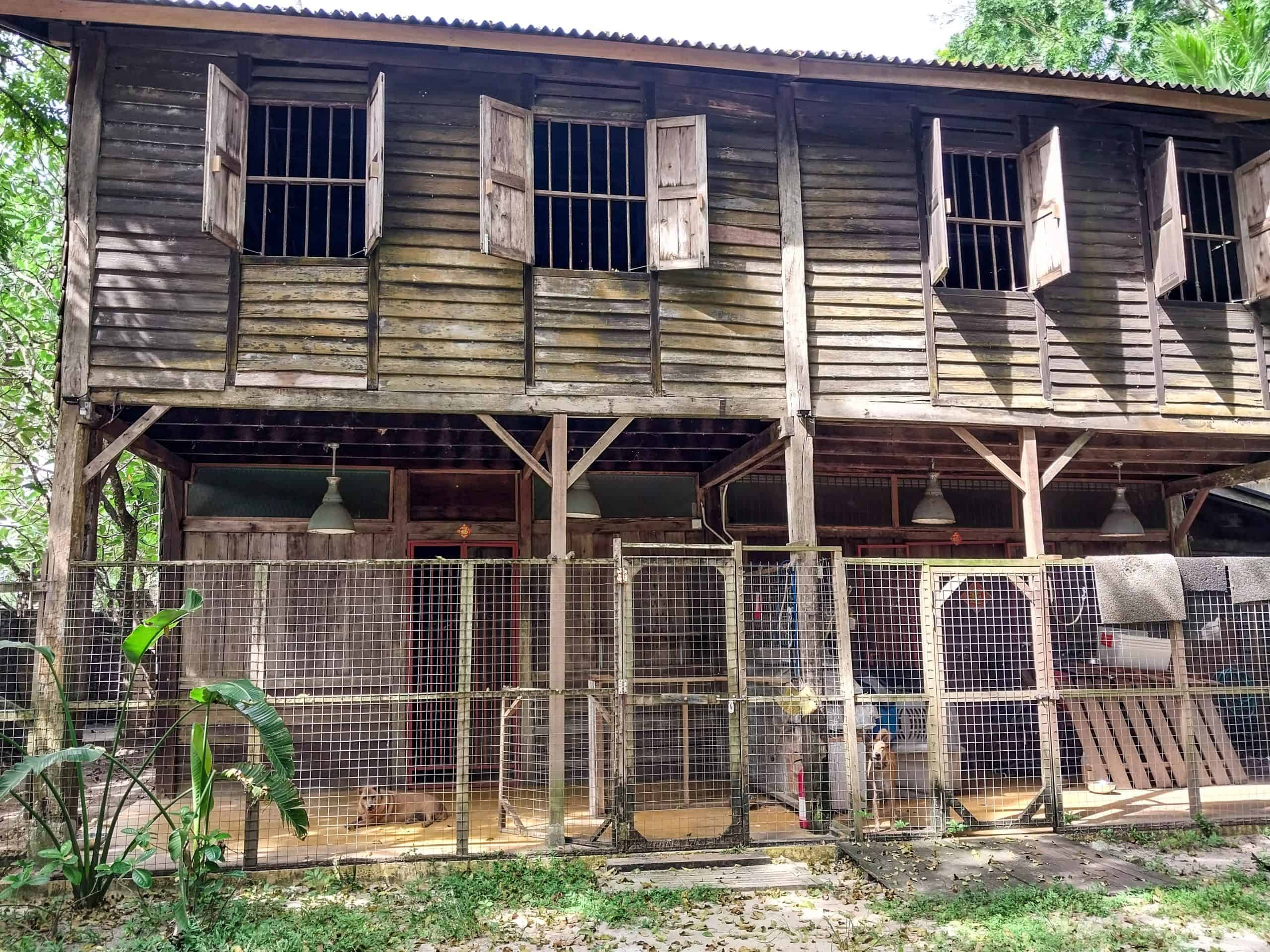
Although LASSie no longer takes in ‘new’ strays or offers veterinary services, they still quietly continue their work. LASSie presently has about 100 permanent older residents who are being allowed to live out their lives in the safety of the sanctuary. Not the best solution of a forever home, but much better than living on the streets.
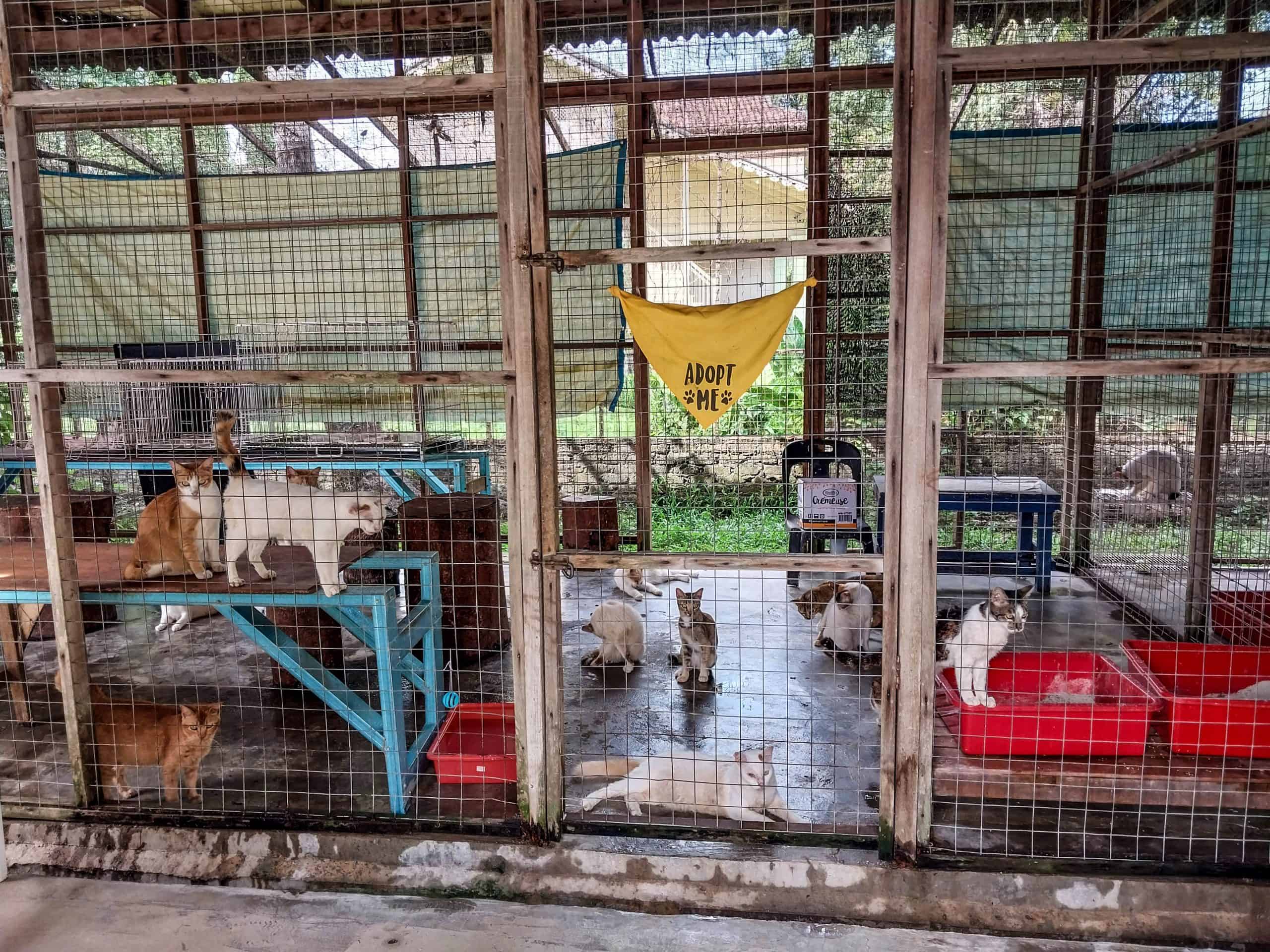
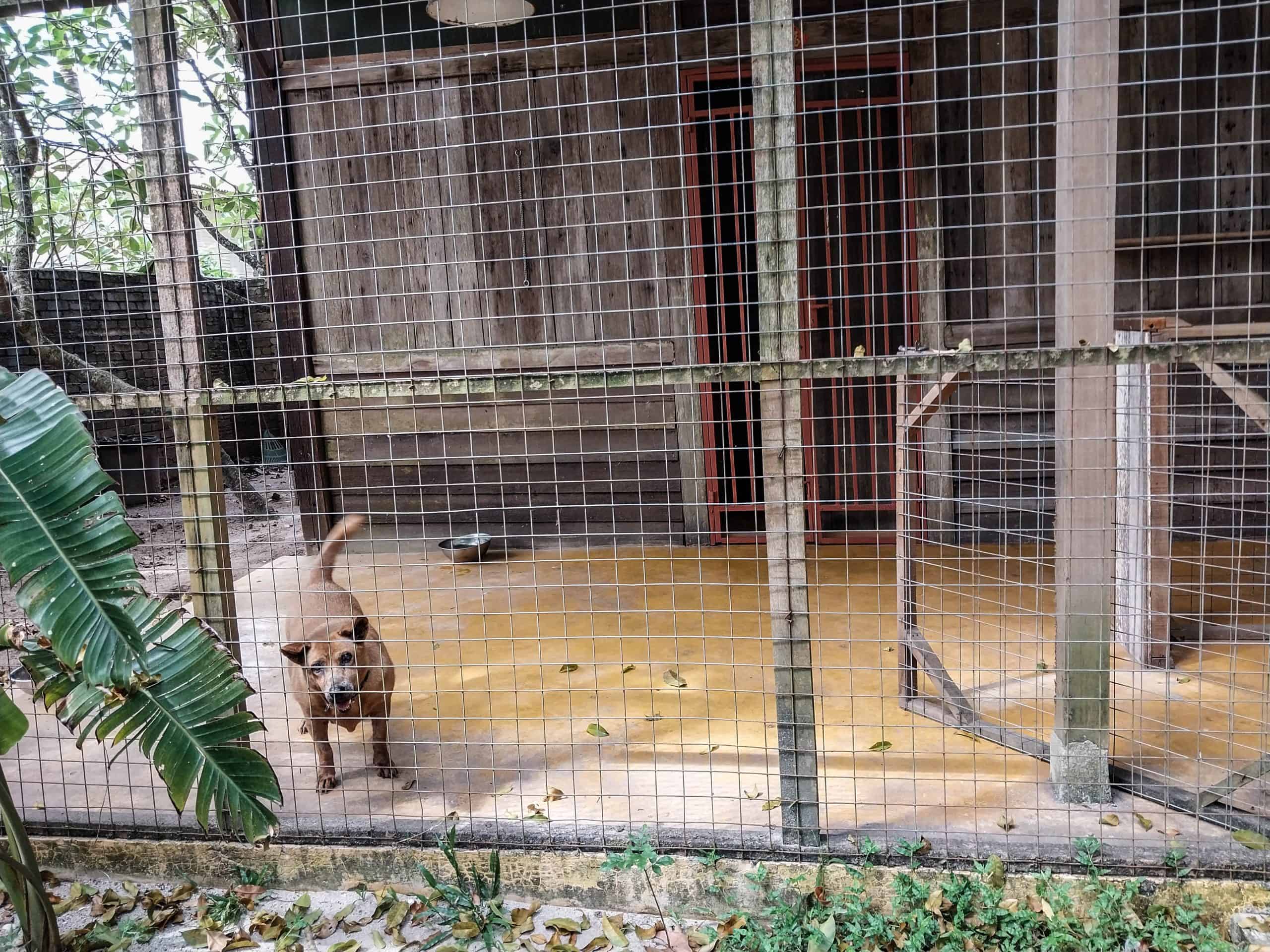
Present funding still comes from the resort, as well as from donations. Volunteers are needed to clean pens, help with giving medications, walk dogs and socialize with the residents. And, of course, if you’d like to adopt an older dog or cat, LASSie residents would appreciate your considerations.
LASSie Langkawi Animal Shelter and Sanctuary
Needs: money, donations of food, medicine & supplies, volunteers
For cash donations & pledges:
CIMB Bank
Account name: Langkawi Animal Shelter and Sanctuary Foundation
Account number: 8006533959
Email: [email protected]
Social Media:
Facebook: Langkawi.LASSie
Instagram: langkawilassie
4PAWS Langkawi (not to be confused with 4PAWS Penang)
4PAWS is a Langkawi thrift shop that donates their proceeds to helping Langkawi stray dogs and cats. It was originally opened by a Langkawi expatriate resident and run by community volunteers. Pet owners and independent rescuers could bring their cases to the attention of 4PAWS and get some financial assistance with medical expenses per 4PAWS’ considerations.
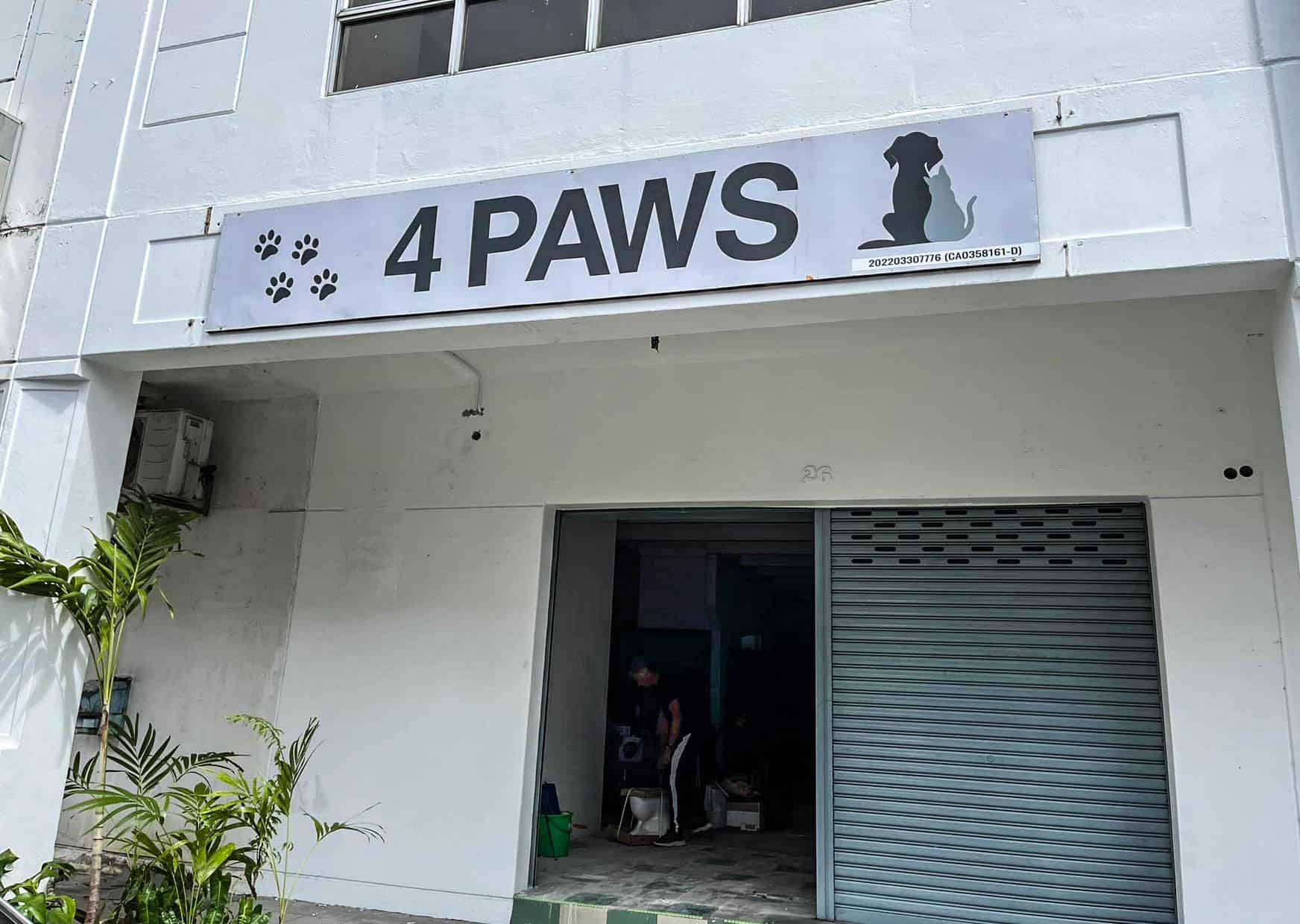
(photo source 4PAWS Facebook Page)
The business has since changed hands (and moved locations), but the mission stays about the same. The present owner of 4PAWS is also a passionate animal lover and often donates to the TNR Langkawi project as well as to local foster efforts, with either cash or supplies. She also makes the rounds of feeding various strays, where known hot spots are located, in an effort to eventually ‘trap’ for the TNR project efforts.
*2025, 4PAWS no longer operates at this location, but continues their work with strays
4PAWS Langkawi (thrift shop)
Needs: resalable goods, money, donations of food, medicine & supplies
For cash donations & pledges:
Hong Leong Bank
Account name: 4Paws Langkawi Resource
Account no: 37201011437
Tel: 012-652 1396
email: [email protected]
Social media:
Facebook: 4PAWS Langkawi
Langkawi Stray Dogs and Cats, How Can You Help?
There are many ways to help the Langkawi stray dog and cat population. The biggest help is with cash donations. Donating directly to the registered NGOs is the most efficient way to insure the main players and top tier teams can continue their expert work. They in turn can allocate extra money to local home fostering efforts if need be.
In some cases local home rescue teams foster dogs and cats until a forever home comes available. People who want to help, have the space for fostering but cannot afford the financial burden can discuss and make possible arrangements with TNR Langkawi, WOOFF, LASSie or 4Paws.
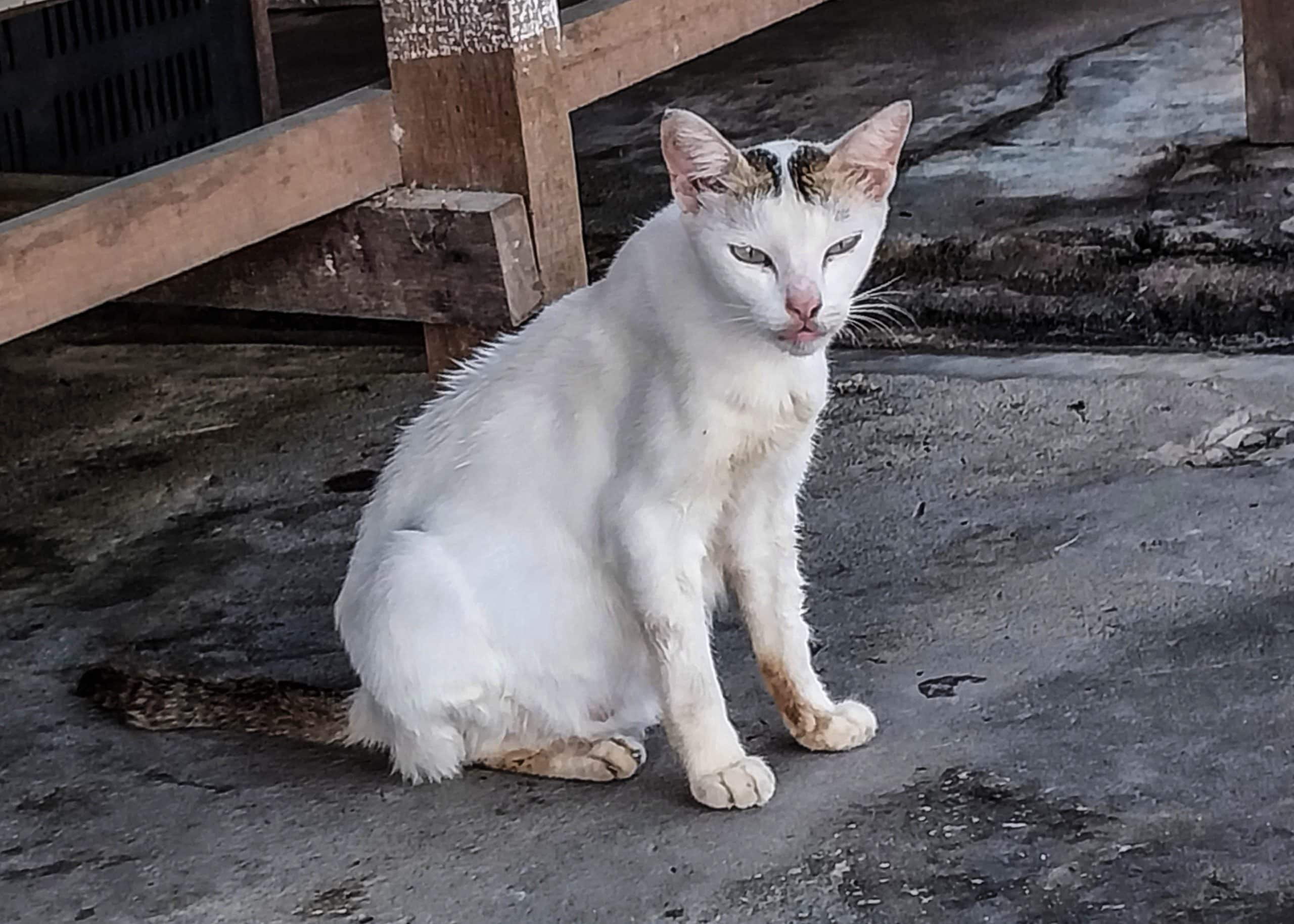
For people who want to help the cause yet cannot afford donations, then your time is a beautiful thing. The NGOs always need extra hands as well as people to simply socialize with confined or recovering dogs and cats. They also need supplies, food, toys, etc.
Many of these official fosters want to remain anonymous and keep a low-profile, to avoid becoming a source for dumping puppies and kittens. Individual cases being highlighted via social media may or may not be trickle downs from NGO efforts, so before you start writing checks over to a new Facebook friend ask them who they are working with and inquire directly with that NGO first. Transparency is always a good thing.
What to Do if You See an Animal in Need?
First off, get a clear picture of what you are seeing. Fat, healthy puppy playing near a road? There may well be a mom near by, or out searching for food to bring back. That puppy doesn’t necessarily need to be rescued. Note the location and contact the NGOs for advice or call MPBPL’s K-9 unit. Bringing the stray dogs or cats back to your hotel or guest house is thoughtful, but not practical.
Determined to feed every stray-looking dog or cat you cross paths with? More power to you. But please try to leave the food (and water) away from the roads if possible. Similar to the local monkeys who have become accustomed to cars stopping to feed them, the dogs and cats do as well. Which of course puts them at a higher risk of being hit by a car. Use common sense.
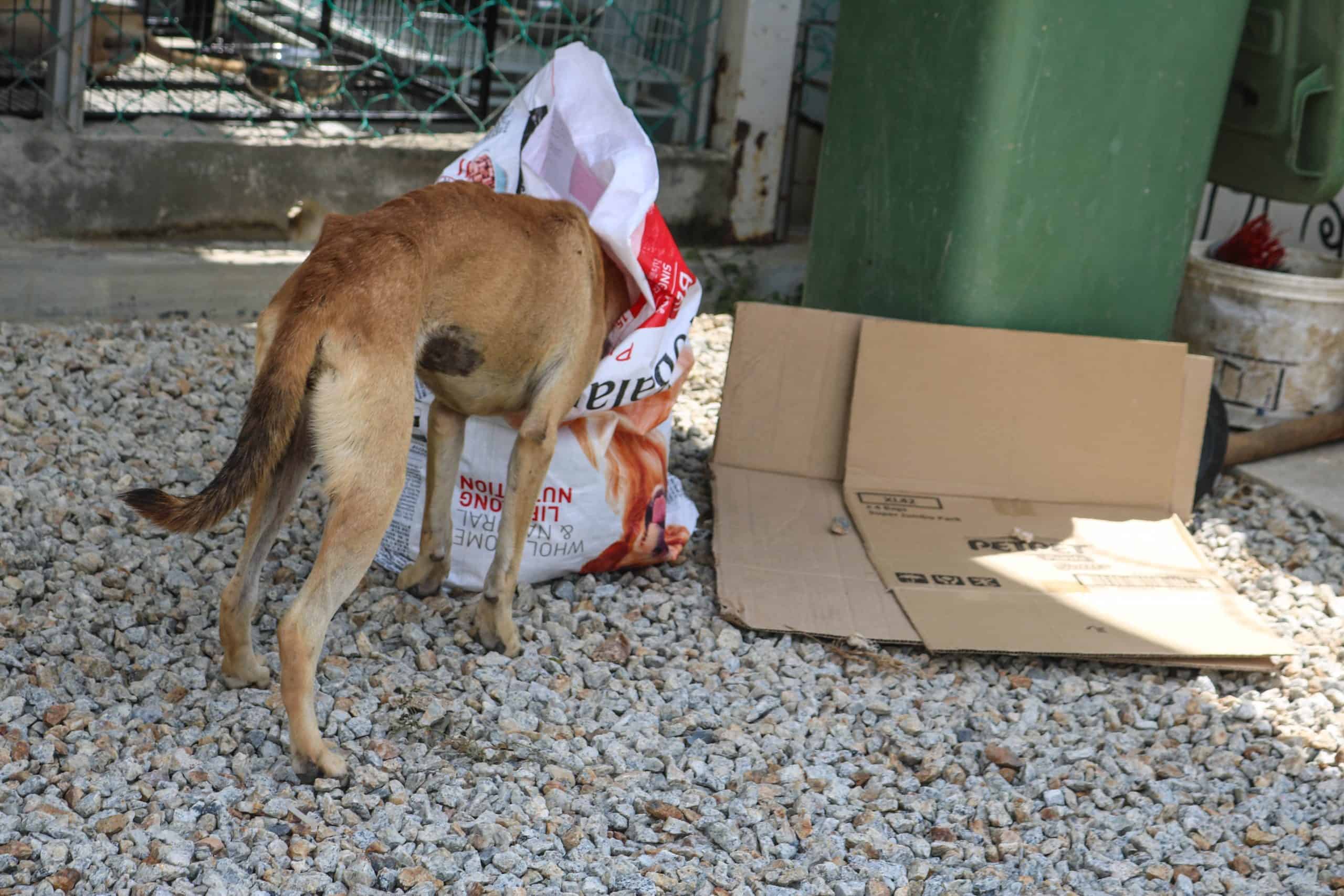
Ok, so you’ve ignored the above and now have a puppy or kitten in your possession. You’re on holiday and are leaving. Now what? If your fantasy is to take that cute puppy or kitten home with you, then that’s awesome. But if it involves crossing a border or flying, it’s an expensive and complicated exercise. If you have loads of spare cash, then go for it. But if you think the local community is going to pool their resources together to help fund your rescue efforts, then think again. Harsh words from me right? But it’s usually the reality.
Promising to send money later and other generous sounding words ring hollow to the local experts also. You are not the first nor the last to make financial promises that won’t be kept in exchange for immediate or special attention.
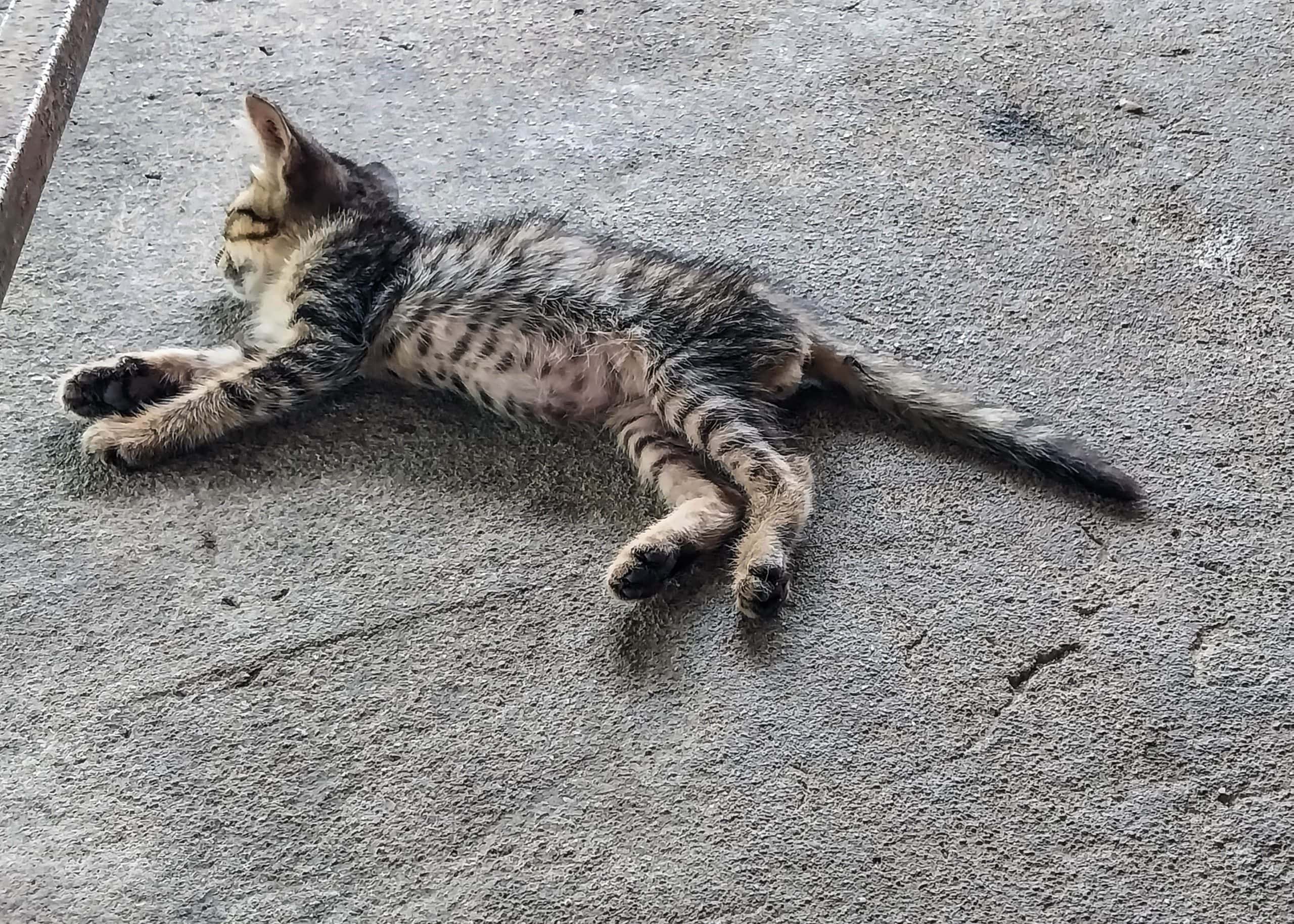
And randomly adopting Langkawi stray dogs and cats is admirable, but almost a bit cruel. For a brief moment in time your vacation rescue gets 3 square meals and lots of love and then it’s time for you to leave Langkawi, then what? If you are keen to temporarily ‘foster’ for one of the NGOs. Awesome. But do note that casually adopting a stray means more than just an occasional bowl of food. Want to really help? Communicate with one of the Langkawi NGO Team Leaders about your options.
You met a new friend, who knows a person, who knows a person who ‘rescues’ strays? Could be the answer to your prayers right? Or it could be that your perfectly healthy puppy or kitten rescue will soon become rehomed to a cage in someone’s backyard. Maybe even adopted a few times before eventually being released back into the world of strays. You may even sponsor the rescue. But honestly? Your sponsorship money will go to much greater use if you deal directly with NGOs. Period.
Know Someone Who Needs to Be Reminded Where Babies Come From?
Another way you can help decrease the number of strays and unwanted dogs and cats is to encourage locals (including expats) to spay and neuter their own pets. Maybe even offer to pay for the operation yourself. Yup, everyone loves a cute puppy or kitten, but unfortunately there are not enough homes to go around. There are also many reasons your encouraging words may fall on deaf ears, but it’s worth the effort to try.
I once offered an expat to personally take his sweet cat to the vet myself and even pay for her operation, but all I got from him was an ”Oh, I’ll get around to it”. He didn’t by the way. So, it just goes to show you that the need for educational enlightenment knows no borders. We can only do what we can.
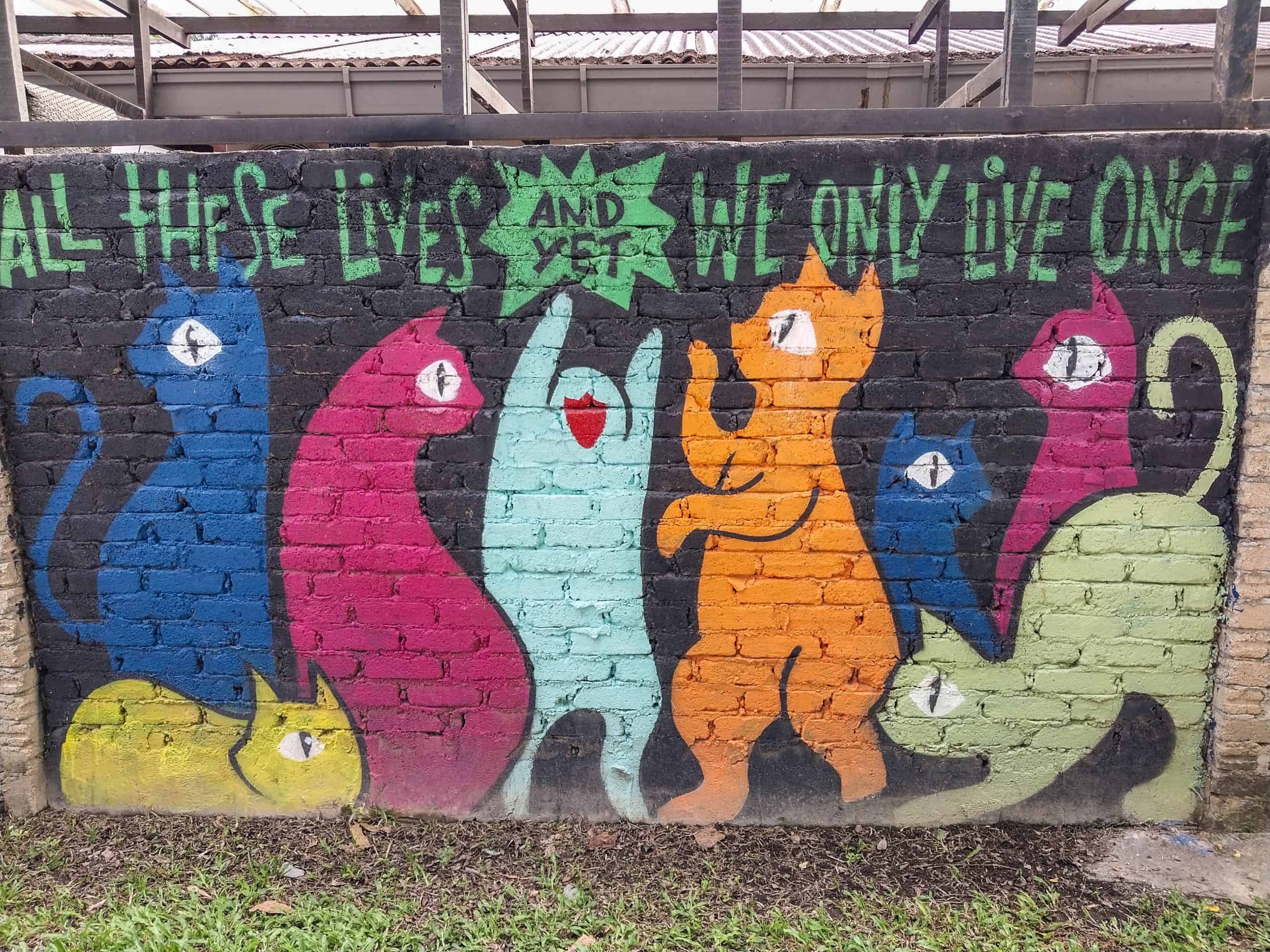
My Additional Two Cents to Animal Loving Tourists
Before you even step foot in Southeast Asia, you need to be mentally prepared to see some things that will tug at your heart strings. If you are an animal lover you may as well be informed ahead of time and check your destinations for local animal welfare focused NGOs, because the majority of them are in need of volunteers and would love to hear from you. And of course donations are always welcomed and appreciated.

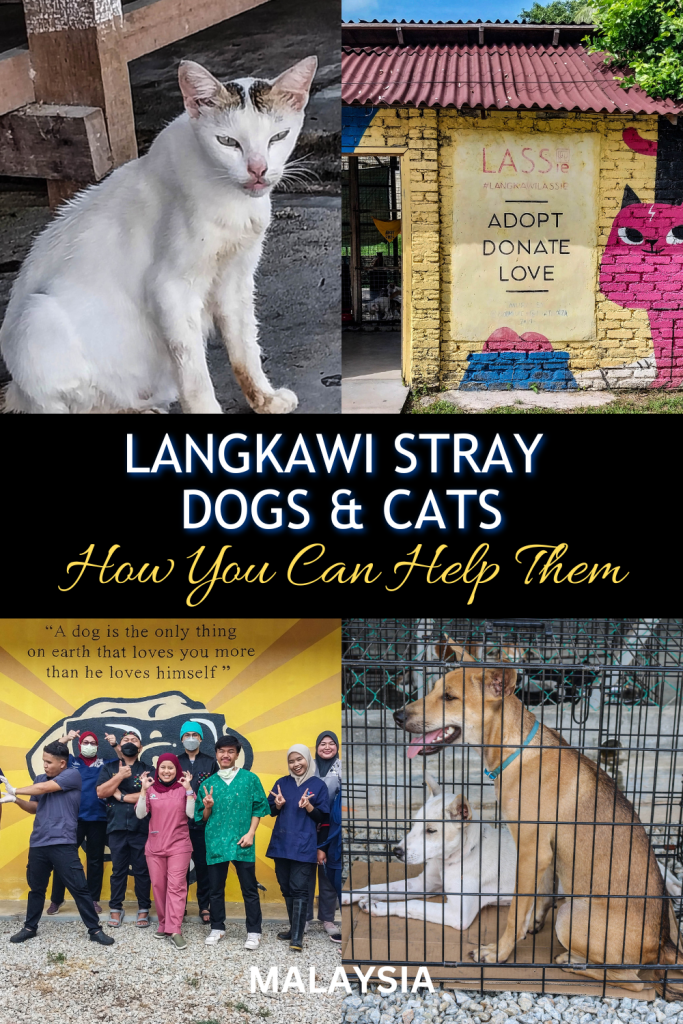
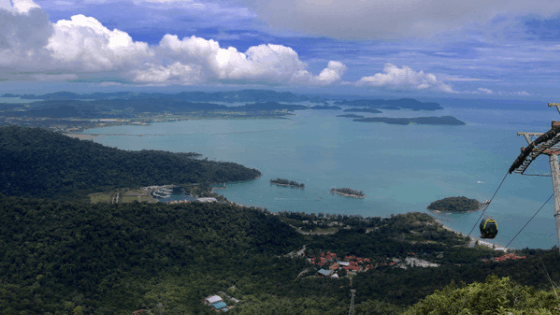
Bravo,
i live in Thaland just north of Phuket – Khao lak to be precise. One of my brothers, Donald, ives in Kuah and I have spent several winters there. 3 years ago, pre Covid I spent the winter in Langkawi and at some stage a feral bitch which lived in the carpark at Gunung Raya golf club gave birth to 4 puppies.One puppy was clearly not well from the start and a second one disappeared within days. Whilst I was in Kuah, I took food for the puppies and the last 2 were growing happily when I left for Europe. As he was seeing me off at the airport, Donald said « I think I will go and get the 2 puppies and take them to be spayed ». As it turned out, there was only one left and after having her spayed, he did not have the heart to put her back in the carpark so she arrived in his condo in CHOGM Villa.
It turns out that Lucy is a very quiet affectionate dog who seemed to be immediately house trained. BUT, the « NAZI » committee running CHOGM Villa had other ideas and claimed that dogs were not allowed. They made life very difficult and started exacting a monthly fine. Donald tried to find a home for Lucy but in COVID times had no success. At the end of COVID, i was moving into my hose in Khao Lak and Donald asked me to take Lucy there. That’s when the problems started. Malaysia does not like dogs, but they make it difficult to export one.
At the tie, Donald needed a Certificat of entry to get into Thailand, and there were umpteen different certificates required to get Lucy out of Malaysia and into Thailand. Donald undertook this obstacle course and the plan was then that I would drive down from Khao Lak and meet him and Lucy at the Kaki Bukit border station.He would bring Lucy in his car on the ferry to Perlis, and then up to Kaki Bukit. I would then take Lucy in my car and Donald wouldtaken to Satun in a « sterile » taxi to a quarantine hotel in Satun, stay overnight and get a PCR test in the morning to allow him to travel onwards to Khao Lak with me. However, at the border crossing, the Malays suddenly decided that he needed another export document for Lucy.. I was at the other side and could see him and Lucy trying to negotiate. The only way to get this other document was to go to Danok border crossing, This was 1 1/2 hours drive for Donald and 2 1/2 hours for me Many phone calls later and after some negotiation with the Malys, Lucy was allowed out. The Thais border people were then exceptionally helpful in processing both Lucy and Donald who were now at the wrong border crossing.
In the end Donald was allowed to come with me and Lucy to Satun in my car. Once we had got through all this palaver, we both need a drink and as we drove towards Satun, now in darkness, we stopped at the first place we found.It turned out to be a brothel, but we got a drink and the girls liked Lucy.
In theory, dogs were not allowed in the hotel but a friendly night porter turned a blind eye. in the morning, two hospital employees turned up in full white overalls, masks and bonnets to stick something up Donald’s nose. 3 hours later came a call with a negative result and he was free to go.
Lucy has now been living an extremely comfortable life in Thailand for 18 months and is the most affectionate dog I have ever come across. She is also the healthiest dog i have ever known. She now has to share her billet withe a stray Thai cat called George.
On another note, SOI DOG in Phuket has been undertaking dog sterilisation for years and has radically reduced the stray dog population of Phuket.
Wow David, that sounds like a nightmare. Lucy is a very lucky girl. Thank you for sharing your experience, in case another finds themselves in a similar situation.
It was an amazing job that you did with Lucy. I am Malaysian, myself but living in France. I do believe most Malaysians love animals but do not do much to care for them. The authorities do not always make things easy. People just go by their daily lives hence ignoring the needy and helpless strays. I saw this when I was in Langkawi. Saddened by the number of strays. Reached out to the local animal shelter only to be told their hands are full.
Thanks Aida, but I didn’t personally have any involvement with Lucy, so I can’t take credit. But glad it all worked out. I wrote this blog post so others would know that there are several NGOs for folks who want to help or need help. Unfortunately, we can’t save all of the strays, but improving their lives is always a good thing. Getting more folks to spay and neuter their family pets would also be a good thing, but it’s a bit costly for the average family. I think some vets are quietly implementing a sliding scale payment option, so it’s a start.